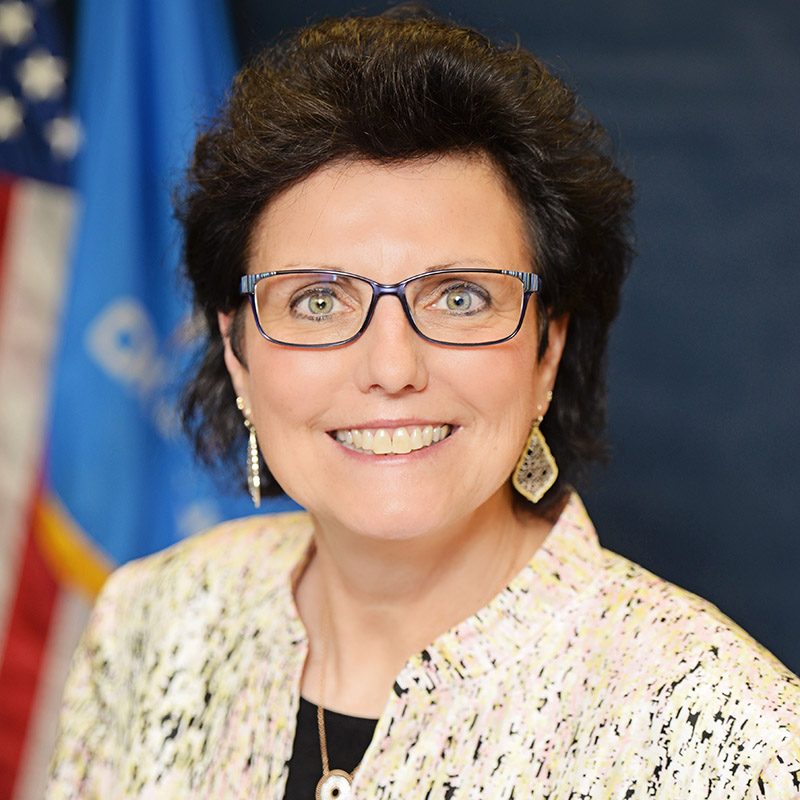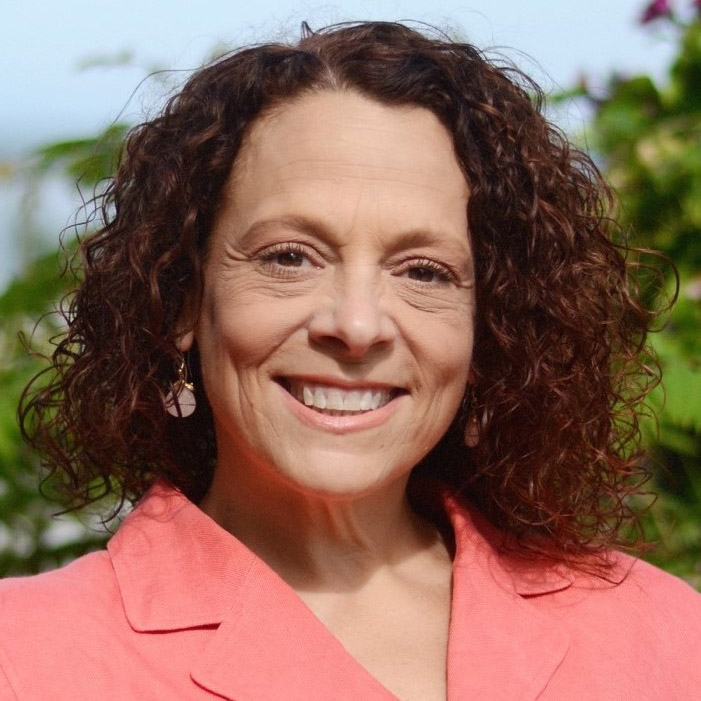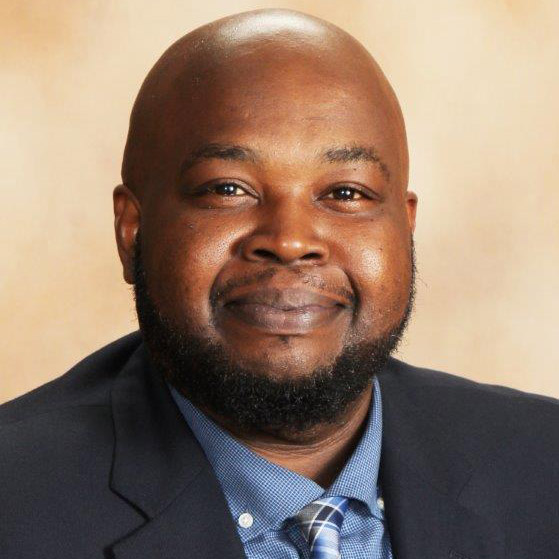74 Interview: Teacher of the Year Finalists on Setting Priorities, Changing Policy, and Taking On a More Political Role
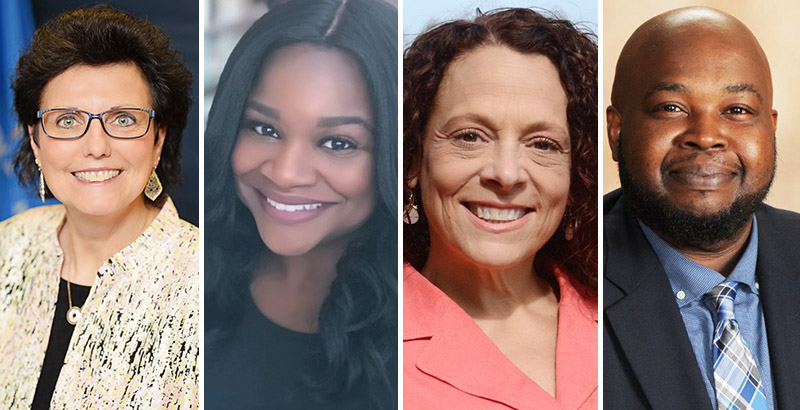
See previous 74 interviews: Democrats for Education Reform President Shavar Jeffries on the politics of education policy, former Los Angeles superintendent John Deasy on his effort to reform juvenile prisons, and former education secretary John King on school discipline The full archive is here.
National Teacher of the Year winners are increasingly making headlines outside of their annual White House honors and speeches at education conferences.
The 2018 winner, Mandy Manning, presented President Trump with letters from her immigrant and refugee students at a White House reception last year, and led a teach-in on the southern border to protest immigration policies.
Sydney Chaffee, the 2017 winner, was the first charter school educator selected for the job, and focused on social justice.
The 2016 winner, Jahana Hayes, was elected to Congress last year.
At least one 2019 finalist sees the broader political role continuing.
“We’re sounding the alarm for the rest of the country that this is important. If we don’t take care of our children, who are our most valued resource, then what are we saying about who we are as a country?,” Rodney Robinson said. “I think teachers are on the front lines standing up because they see what’s best for our kids and what’s best for this nation.”
The Council of Chief State School Officers coordinates the National Teacher of Year program, and the winner is chosen by a committee representing national education organizations.
Four finalists have been selected, and the winner will be announced later this spring.
—Donna Gradel, environmental science and environmental research, Broken Arrow High School, Broken Arrow, Oklahoma. If selected, she would focus on efforts to make sure all students find their “sense of purpose” and provide more opportunities for STEM education and social innovation.
—Kelly Harper, third grade, Amidon-Bowen Elementary School, Washington, D.C. Her platform would focus on teaching students to advocate for themselves and recruiting teachers of color.
—Danielle Riha, middle grades, Alaska Native Cultural Charter School, Anchorage, Alaska. Her platform would focus on equity, particularly empowering indigenous students to fight for revitalization of their culture and language.
—Rodney Robinson, social studies, Virgie Bradford Education Center, a juvenile detention center in Richmond, Virginia. His platform would focus on equity, especially on recruiting men of color to be teachers.
The finalists spoke with The 74 in late February when they were in Washington for their final interviews. The following interview has been edited for length and clarity.
The 74: If you could be the U.S. secretary of education, or a member of Congress, what federal policy would you like to see changed?
Gradel: [I would create a policy] to recruit new teachers and to retain the ones we have that are effective. I know that’s a funding thing, but I think when we look around the country, it’s the crisis … It’s something where we should definitely utilize whatever policies we can.
Harper: Ensuring that social-emotional learning is included in how schools are evaluated and, especially when it comes to assessing teachers, that culturally responsive practices are a component of how schools are evaluated.
Riha: I think there should be a lot more educators involved in policymaking. I think that our policymakers need to rely on our wisdom and our education and our experience because we are the people that are in it. We know what successful education looks like. We know what funding can do to implement progressive, creative learning environments.
Robinson: When it comes to standardized testing, I would eliminate a lot of them. The ones that are in place, I would measure growth more than just a flat pass/fail. Because all students are at different levels, and it’s unfair to judge that student on the level where you think the kid should be, and it’s unfair to judge a teacher on a level that you think kids should be…
If you see growth, you can put more funding toward growth rather than taking away funding … I think we need to get away from this punitive aspect, and look at growth and rewarding growth, with more resources to further it.
The 74: We’ve seen a wave of strikes across the country in the past year. To what do you attribute this activism, and do you think it will continue?
Gradel: Undoubtedly in Oklahoma, the first thing was teacher pay. But teachers walked out just as strongly for funding in the classroom. In Oklahoma, we’ve seen over a decade of decline, not even keeping it level, and some deplorable working conditions. I would say that would be the main reason for the walkout.
Teachers are creating one voice of consensus and becoming more involved politically. We saw a big switch in our legislative branches [with the election of many new lawmakers who have an education background.] Hopefully, that will also impact future decisions.
Harper: I think it’s critical that we keep our kids’ needs at the forefront, and [that] our fellow educators are trying to ensure that our kids have their needs supported … If our kids are our nation’s most precious resource, we need to have funding to support those kids to ensure they have the future they deserve — that every day they walk into school, their options are limitless, their potential is limitless. If we provide our kids what they need, then our kids will be able to be the change of their generation.
Riha: Speaking from my experience in Anchorage, we were on the verge of striking. The mediators were suggesting to strike, but we decided to have teach-ins, where we came to school and we did some media prompts outside of the school to let them know that we were not going to step out on our kids. We were going to be there for them, but we were still voicing that there needed to be improvements…
I do see strikes and things like that continuing. I think that with unification and with educating the public and our policymakers what the needs of kids are, they’ll see what the needs of teachers are, and in order to keep good teachers and to get more teachers of color to represent all of our students, I really see change coming.
Robinson: As a country and as a world, we’re seeing a lot of threats to democracy right now. We understand, as teachers, education is the No. 1 thing to prevent these threats … We’re on the front line, and we’re sounding the alarm and saying, “Hey, this is what happens when you don’t fully fund our kids and our future. You’re really not funding American values and American ideals.”
We’re sounding the alarm for the rest of the country that this is important. If we don’t take care of our children, who are our most valued resource, then what are we saying about who we are as a country? I think teachers are on the front lines standing up, because they see what’s best for our kids and what’s best for this nation.
Last year’s winner, Mandy Manning, recently organized a teach-in on the border to protest the administration’s immigration policies. The 2016 winner, Jahana Hayes, is now a member of Congress. Do you see the National Teacher of the Year as having a broader political role?
Gradel: The way I view it, it’s part of the job. You are going to be an advocate. You may have your platform or your thing that’s your specialty, but you’re going to have to reach outside of it, because you have to represent all the teachers and all students throughout America. We have so many issues. The public school is now the hub, not just of academics, but social, cultural, so you have all these issues that you potentially are going to be involved with.
Yes, you’re going to be an advocate, absolutely, that’s part of the job … I’m more of a team player, so I would have a tendency to bring in others.
Harper: Seeing this increased wave of teachers being able to advocate for their kids’ needs and for our profession is important. We all are so diverse and so many teachers around the nation have diverse issues, but we’re all unified for one thing, which is improving learning conditions for kids. It’s important that our voices are heard and that change is made. When we speak up about issues that matter, folks will listen. When we work collectively as a unit, we can see those improved changes. The key is not just moving in one narrow lens, but incorporating the voices of many teachers. Although we’re individuals, together we’re a collective mighty powerful fist that can create those opportunities.
Riha: I can honestly say that when I received my position as Alaska state teacher of the year, I didn’t feel that I was a very political person at all. I was really focused on my students. I didn’t realize that I was indeed an advocate for language revitalization, because I was so deep into it, working with my students for them to share their voice. Now, similarly, I see that I do have a voice for teachers, too, and I’m an advocate for equitable learning…
I want to inspire other teachers who are like I was and … to realize that everybody in our country needs to hear these stories and needs to hear these voices of teachers who are voices for their students and their parents because education has to be equitable and relatable to every kid, regardless of economic status, heritage, race.
Robinson: If chosen as the National Teacher of the Year, you have to represent the profession, so it’s your job to sound off the alarm as to what you see as a major issue in education. For me, it’s strictly the school-to-prison pipeline, because I work in a detention center.
I want to dedicate everything I can that I’ve learned through my experience, to bring that voice to the table. I want to raise the issues so that people who aren’t in education can understand what’s going on. How do school discipline policies affect the school-to-prison pipeline? How does lack of funding affect the school-to-prison pipeline? How do lack of equity and diverse teachers affect the school-to-prison pipeline? I think no matter our cause, we are experts. We need to embrace that role and speak up for our profession.
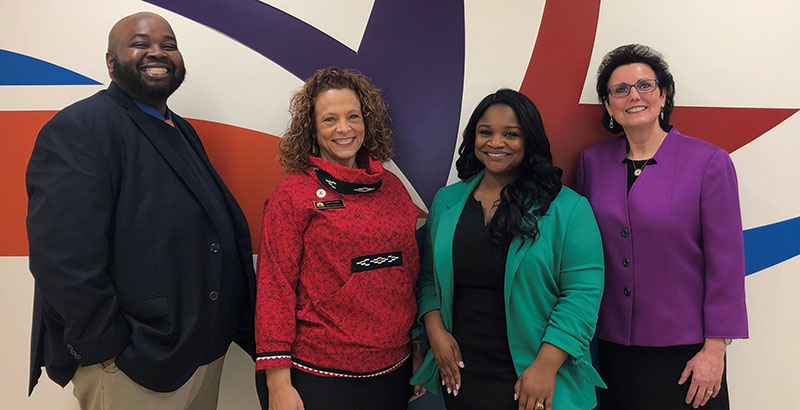
What’s been your best moment teaching?
Gradel: My best moment was when I took a group of students to Kenya and they created, back here with MIT, a fish food. We built the system and taught the orphans in the middle of Kenya how to create their own food. Seeing the looks on my students’ faces of, “Oh my gosh, I had an impact in the world. I helped feed these young orphans halfway across the world that I didn’t know, but yet I was able to come over and make a difference in the world.” To see them interact and the look of love, for those in a different culture and the satisfaction of being able to help someone — it was a great, great moment of my teaching career.
Harper: My best moment is teaching a child how to read, especially my black males. I had a student in particular who would literally push the book away from me every day and say, “No, I’m not reading it. I’m not reading it.” It was because that child struggled with reading and he was embarrassed and afraid, but as we partnered together [he improved]. … To see that student go from being far below grade level to essentially passing his PARCC test and then being proficient — it was more than about the academic achievement. It was about the sense of confidence he had and knowing that this child is leaving third grade as a strong reader.
Now he’s in middle school and he’ll come by and show me his report cards, and I see the student who I saw struggling so much as a third-grader getting these A’s and B’s in rigorous courses. I am proud that he’s able to do that now, and that for the rest of his life, you can’t take that away from him.
Riha: For me, it’s helping kids find their identity, and it doesn’t necessarily mean race. It means who they are as a person, and what their role is in their community and their school. To know that as that individual, they are perfect just the way they are. Watching kids advocate for themselves, and then because of that strength in themselves, they’re able to advocate for other people and really represent their community as a leader…
I have two kids who just became teachers in rural Alaska and they’re from rural Alaska. They were my students and now they’re out teaching in the bush … Then I have a young man who hated his identity, hated being Inupiaq. He had always been bullied and teased about it. And once he found his identity, he’s a teacher too. He’s not a teacher in the classroom, but he learned from fifth grade until he became a senior. He learned his indigenous language, and now he teaches students in his village and in the city how to speak Inupiaq. He also teaches them how to make drums … He didn’t go to college, he didn’t become a teacher in that sense, but he is a teacher and he is a leader in his community.
Robinson: I had eight former students now who are currently teaching in my district. They always said, ‘We’re just trying to improve and instill the values that you instilled in us.’ I literally shed a tear at that moment because that was, I mean, that hit my heart. That’s what we’re in it for, training the next generation. I was always taught from my mother, it’s your job to pull up the next generation. This was at a time when I was really in doubt about my teaching career and the effectiveness of everything, and to have all those students come up to me … that’s my most valued, treasured thing.
Get stories like these delivered straight to your inbox. Sign up for The 74 Newsletter

;)
